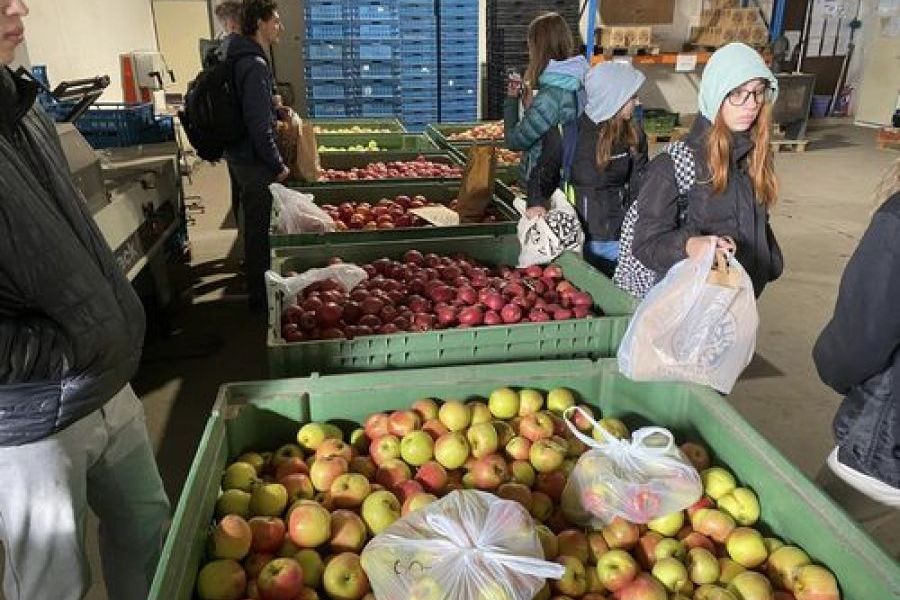
The problem
Welcome to our inspiring student-led project, "From Field to Table - Apples from the Local Orchard," where we address the lack of awareness about local food sources. This educational resource outlines how students can take proactive steps to connect with local producers, promote sustainable food practices, and raise awareness about the benefits of choosing locally sourced products.
Many people are unaware of the potential of local food sources, leading them to rely on multinational retail chains despite the often lower quality of goods. Our students recognized the need to shift this perspective, emphasizing that buying locally not only ensures higher quality but also minimizes unnecessary emissions and supports the local economy.
The solution we used
Our solution involves a step-by-step approach, guided by the Farmer-to-Consumer strategy. Students embark on a journey, starting from discovering local farmers, understanding their production processes, to preparing and presenting a meal using locally sourced ingredients. The goal is to instill a sense of responsibility for a sustainable food system and raise awareness of each individual's role in it.
Tools or Equipment Needed:
- Access to a local producer
- Suitable space for food preparation and serving (e.g., school kitchen or canteen)
- Basic food preparation tools (knives, cutting boards, bowls)
- Bags for finished products
Implementation
Finding and Promoting Local Producers:
- Students identify and connect with local food producers or farmers.
- Excursions to selected farms deepen understanding of the sector and its impact on climate change.
Use of Local and Seasonal Ingredients:
- Students incorporate local and seasonal ingredients in food and beverage preparation for fellow students and teachers.
Offer:
- Dried fruit (e.g., apples, pears)
- Fruit juices (freshly squeezed)
Evaluation:
- Distribution of food
- Familiarization of pupils with the local producer
Our Project - Apples from a Local Orchard:
In our case, we focused on a local organic orchard. Divided into two groups, students visited the orchard and participated in different aspects of the project. Apples were processed and dried, with the findings presented through an educational presentation to classmates and teachers.
The Process of Making Dried Fruit:
- Wash the apples.
- Cut into 0.5 cm thin slices on a cutting board.
- Dry in the oven or a dehydrator and pack them in bags.
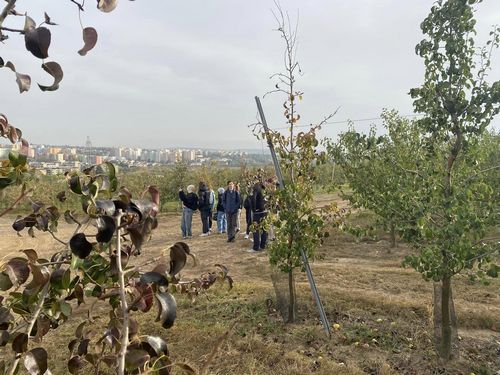
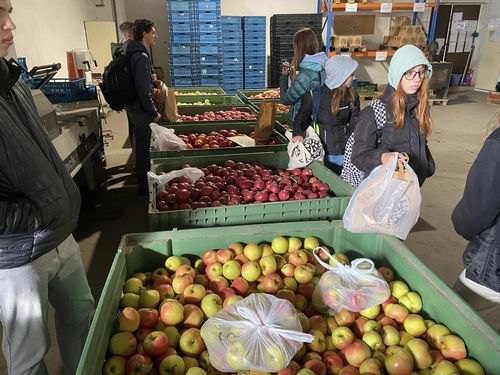
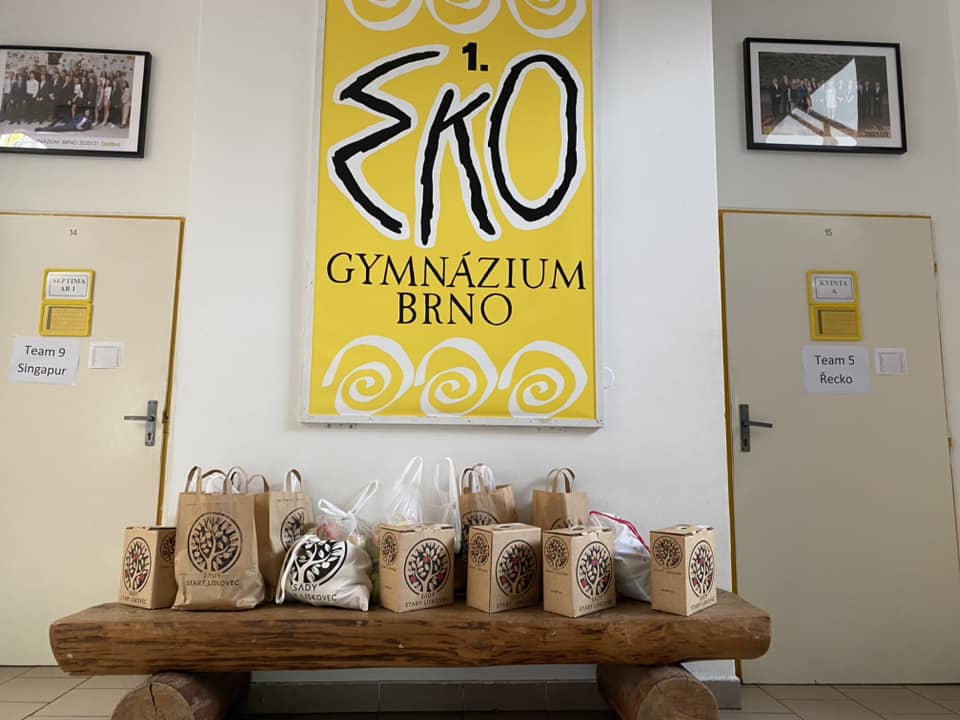
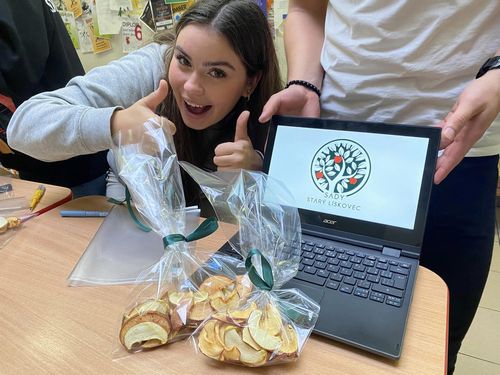
Evaluation
This activity allows students to develop teamwork skills and gain awareness of their responsibility towards climate change. It offers an engaging way to explore relevant issues, perform non-strenuous physical work, and savor locally grown produce.
The positive experiences shared within the community contribute to the local producer's recognition and customer base, supporting their competitiveness in the food market.
"From Field to Table - Apples from the Local Orchard" empowers students to be active participants in fostering sustainable food practices, making a positive impact on both the environment and local economies.
